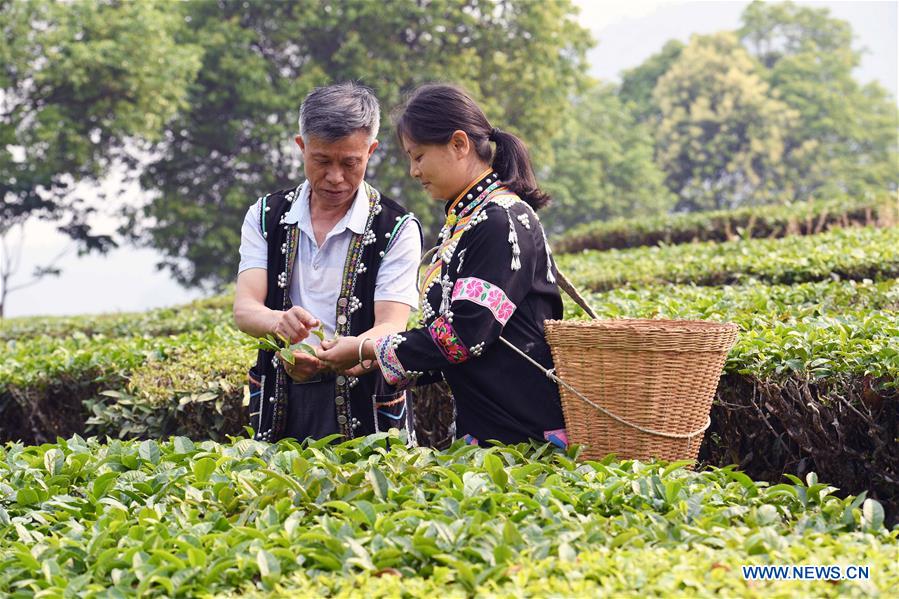Eco-friendly practices boost quality, incomes


The construction of eco-friendly tea gardens in Pu'er, Southwest China's Yunnan province, has resulted in many environmental and economic benefits for the city.
The plantations produce green, organic, safe, high-quality teas that are characterized by cultivation of many plant species without the use of fertilizers or pesticides.
Such gardens are beneficial to the restoration of vegetation and ecological equilibrium, conservation of soil and water and the microclimate within the garden, to ensure the sustainable development of the tea sector, which is Pu'er's No 1 pillar industry.
Requiring low consumption of natural resources, tea production is regarded as a green industry with high added value. That means more than half the city's annual GDP comes from tea.
In 2010, the city's Party committee launched a project to construct eco-friendly tea gardens, which transformed all such plantations across the city in the following three years.
Zhang Tianmei, head of Pu'er's Tea and Coffee Development Center, said that from 2010 to last year, the city invested nearly 400 million yuan ($62 million) in the project.
Each tea garden is required to plant eight to 10 species that will provide shade for 30 percent of each 0.067 hectare plot.
She said the project has greatly strengthened people's environmental awareness in the city, improved the environment in the tea gardens, curbed the use of chemical fertilizers and pesticides, and extended the amount of land certified as meeting national organic standards.
The project has also helped to steadily boost the yield and quality of tea, raising the incomes of businesses and tea farmers.
Last year, the city's tea production reached 120,000 metric tons, with a combined output value of 30 billion yuan.
- China's top legislator to visit Kyrgyzstan, Hungary, Switzerland, attend world parliament speakers conference
- Measures help Tibetan antelope migrate in Xizang
- Xizang Airport sees surge in pet shipments
- Premier stresses high-quality implementation of major national projects
- Mainland tourism dazzles at Taipei travel expo with cultural relic souvenirs
- Global campers promote cultural exchange at mini world expo





































